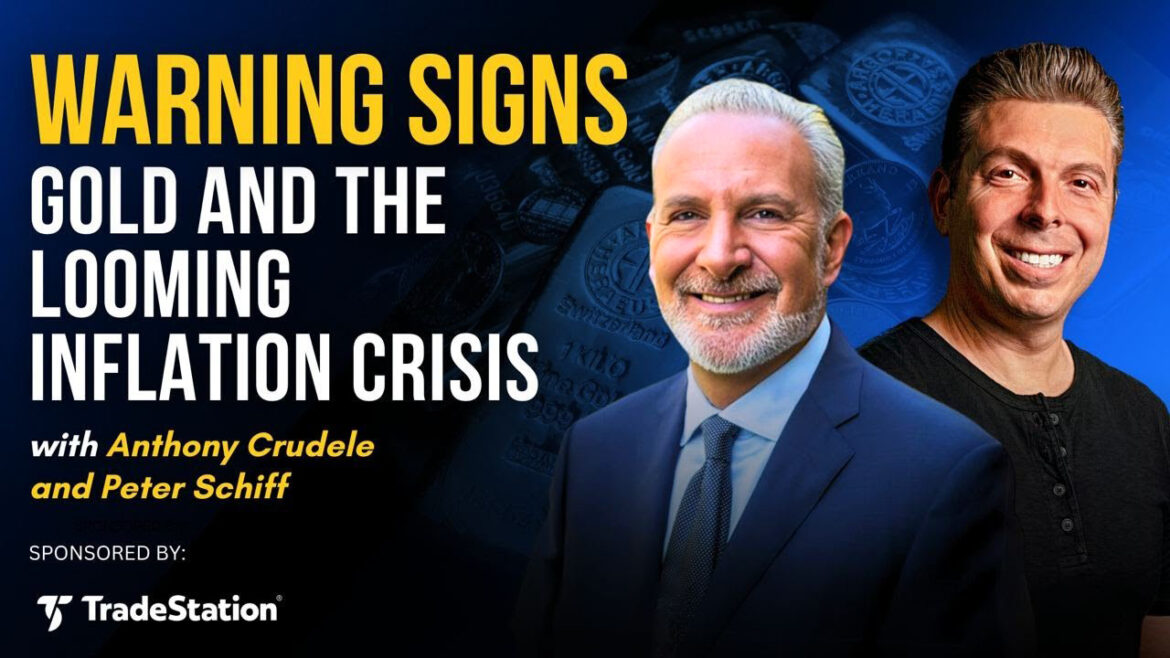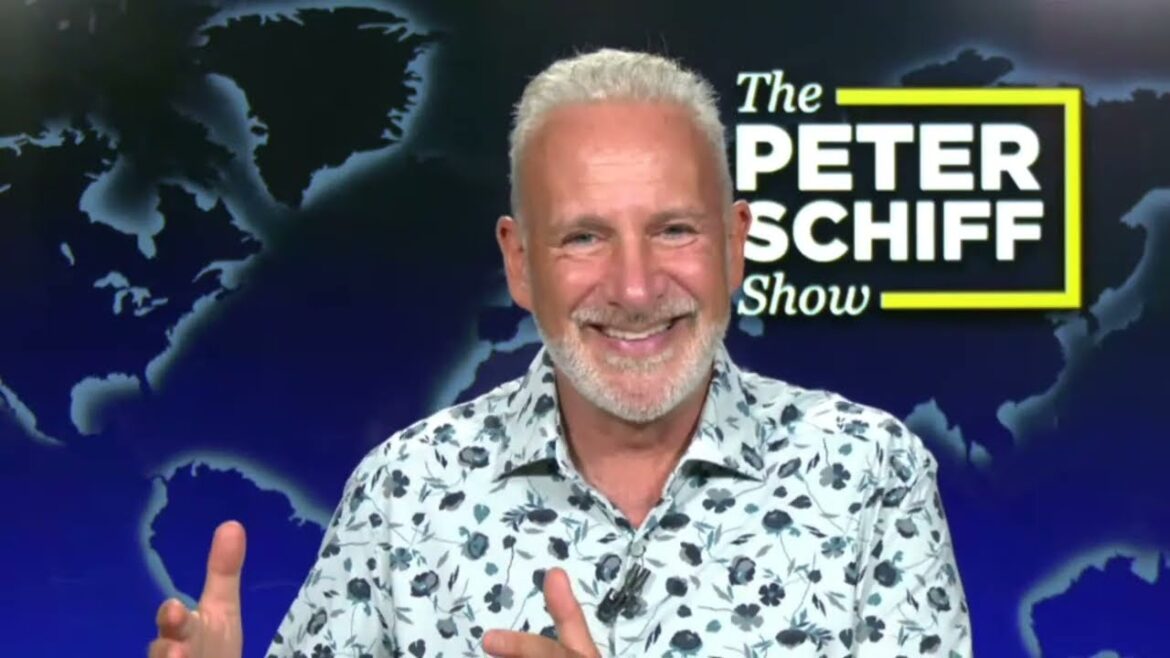Gold has all the potential to go unprecedentedly high. But silver will be gold on
Site:
Precious metals news
Costs continue to increase at the world's two largest gold mining companies. Newmont and Barrick both reported higher costs for the first quarter of 2024. Also, what is the "Real" reason for the underperformance of gold mining stocks versus gold prices...
The U.S. dollar has strengthened significantly against virtually every major global currency this year, affecting nearly two-thirds of the 150 currencies monitored by Bloomberg. This shift, largely due to anticipations of Federal Reserve rate decisions amidst high inflation, has made U.S. assets more attractive and prompted a substantial influx of international capital into the U.S. This robust dollar, reaching heights last seen in the early 2000s, is having wide-reaching impacts from Brussels to Beijing and poses potential serious consequences for the global economy.
Despite expectations of economic tightening, Federal Reserve rate cuts appear unlikely as affluent Americans, particularly retiring baby boomers like Joan Harris, increase their discretionary spending. After retiring, Harris has significantly boosted her travel activities, indulging in more frequent and luxurious trips, including international destinations and first-class accommodations. Her newfound financial freedom, reflective of a broader trend among her demographic, supports continued consumer spending, which in turn sustains economic momentum and discourages rate reductions by the Fed.
McDonald's has reported a rare miss in quarterly profits, its first in two years, as it failed to meet analyst expectations due to budget-conscious consumers overlooking promotions amid broader economic concerns, including the impact from ongoing conflicts in the Middle East. This financial shortfall coincided with a continuing decline in global sales, marking a fourth consecutive quarter of slowed growth, with the latest figures showing an increase of only 1.9% compared to the anticipated 2.35%.
Tune in today for a much-requested update on Hedera Hashgraph with Brandon Hargreaves.
 Record Increase in U.S. Labor Costs Points to Continued Inflationary Pressure
Record Increase in U.S. Labor Costs Points to Continued Inflationary PressureApr 30, 2024 - 13:18:54 EDT
U.S. labor costs surged by 1.2% in the first quarter, marking the largest increase in a year and exceeding economists' forecasts, according to the Bureau of Labor Statistics. This rise in the employment cost index, a key indicator of wage and benefit costs, suggests ongoing wage pressures that contribute to persistent inflation. The data, which surprised markets, led to a drop in stock-index futures, an increase in Treasury yields, and a strengthening of the dollar.
In the first quarter of this year, the pace of pay and benefits growth for American workers increased, potentially heightening inflation concerns for the Federal Reserve. According to the Labor Department's Employment Cost Index, compensation rose by 1.2%, up from 0.9% in the previous quarter. This steady year-over-year growth rate of 4.2% could influence the Fed's decisions on interest rates, particularly with inflation fears looming as they conclude their latest policy meeting.
Patrick Gruhn, a German fintech entrepreneur and former FTX executive, purchased a gold pocket watch recovered from the Titanic for nearly $1.5 million at an auction, setting a record for Titanic memorabilia. The watch, which once belonged to American tycoon John Jacob Astor IV, was bought as a gift for his wife, Maren Gruhn, and will be displayed in museums. This sale was conducted by Henry Aldridge & Son, a renowned auction house specializing in Titanic items.
Last week Peter appeared on the Futures Radio Show podcast with Anthony Crudele. In their interview, they discuss the factors affecting gold’s price, why the Fed can’t control inflation, and the viability of Bitcoin.
Apr 30, 2024 - 09:10:00 EDT
Global gold demand reached its highest first quarter level in eight years, with a 3% increase to 1,283.3 metric tons, the strongest since 2016. This surge was driven by robust investments in the over-the-counter market, where trades more than tripled to 136.4 metric tons from last year's 42.7 metric tons, and record-breaking purchases by central banks. Joe Cavatoni of the World Gold Council highlighted the significant ongoing role of gold in emerging-market central banks' reserve portfolios, suggesting a strong outlook for the remainder of the year.
China's recent accumulation of a $170 billion gold reserve, following a record 27-tonne purchase that raised its total to 2,262 tonnes, has sparked concerns over its preparations for potential conflict regarding Taiwan. The People’s Bank of China's strategic buying, which began in October 2022 and marks the longest gold stockpiling period since 2000, appears to be a precaution against Western sanctions in case of escalating tensions with Taiwan.
Despite record-high prices, India's gold demand rose by 8% to 136.6 tonnes in the March quarter, according to the World Gold Council's "Gold Demand Trends Q1 2024" report. This increase was driven by both a rise in the quarterly average prices by 11% and a volume growth that led to a 20% surge in value terms to Rs 75,470 crore. Jewelry demand grew by 4% to 95.5 tonnes, and investment in gold bars and coins jumped by 19% to 41.1 tonnes, compared to last year.
 Rising Gold Prices Could Push India's Demand to Lowest in Four Years, Says WGC
Rising Gold Prices Could Push India's Demand to Lowest in Four Years, Says WGCApr 30, 2024 - 08:59:09 EDT
Despite an 8% increase in India's gold demand in the March quarter, the World Gold Council (WGC) warns that soaring gold prices may reduce the country's total 2024 gold consumption to a four-year low. Sachin Jain, CEO of WGC's Indian operations, indicated that if prices keep rising, demand might drop to the lower end of the projected 700 to 800 metric tons range.
Japan is actively prepared to address foreign exchange issues, emphasized Masato Kanda, a top currency official, in light of recent market data indicating a possible $35 billion intervention by the finance ministry to support the depreciating yen. Although Kanda did not confirm Monday's sudden yen rise as an intervention, traders and a former official suggested it was. Additionally, central bank projections expect increased yen receipts, hinting at substantial yen purchases, which usually settle in two days.
Apr 29, 2024 - 15:51:26 EDT
As interest rates rise, America’s largest banks, including Wells Fargo, JPMorgan Chase, and Citi, are paying more in depositor fees than they are earning in interest income—a first since the Federal Reserve began rate hikes two years ago. Wells Fargo's deposit costs increased by $594 million this quarter, overshadowing a $1 million rise in interest income. Both JPMorgan Chase and Citi experienced similar trends, each paying about $350 million more to depositors than they earned. U.S. Bancorp also reported a decrease in net interest income, emphasizing the strategic financial adjustments clients are making in response to a prolonged high-rate environment.
Investors across the U.S. are increasingly anxious about the upcoming presidential election, where President Biden may face former President Donald Trump again. Concerns are mounting about how the election's outcome could impact financial markets, including stocks, interest rates, and oil prices. Financial advisors are fielding numerous questions, while Wall Street strategists assess potential scenarios of a Democratic or Republican victory. BNP Paribas' chief U.S. economist, Carl Riccadonna, suggests this election could be one of the most consequential in recent history, influencing major policy decisions on immigration, Federal Reserve leadership, and international relations amid global tensions.
In this week’s episode, Peter covers the dismal figures released Thursday and Friday, horrible tax policies, and the appalling lack of transparency in our government.
Amid concerns over America's surging $34.6 trillion debt, the BRICS nations are moving away from the dollar in their trading practices. China and Russia, key members of the alliance, plan to execute $260 billion in trade exclusively using the Russian ruble, Chinese yuan, and some euros, sidestepping the American dollar entirely. This strategy, expected to be adopted by other BRICS members soon, has prompted a mixed response of diplomacy and threats from the U.S.
Apr 29, 2024 - 13:44:54 EDT
According to Mark Spitznagel, the renowned "Black Swan" investor and CIO of Universa Investments, the Federal Reserve is unlikely to cut interest rates unless it faces a severe economic downturn and market instability. In a recent Reuters interview, he highlighted that while investors anticipate one to two rate cuts in 2024, these would only occur in response to a significant economic weakening, suggesting that a market plunge and recession could precede any such rate adjustments.
Nearly 40 million U.S. families, or 29% of households, are categorized as ALICE (Asset Limited, Income Constrained, Employed), a term created by United Way to describe those earning above the poverty line but insufficient to meet basic needs. This statistic highlights the growing financial vulnerability amid sluggish wage growth and rising costs, with these families being just one emergency away from poverty. This is in addition to the 37.9 million Americans, or 11.5% of the population, already living below the poverty line according to the U.S. Census Bureau.












